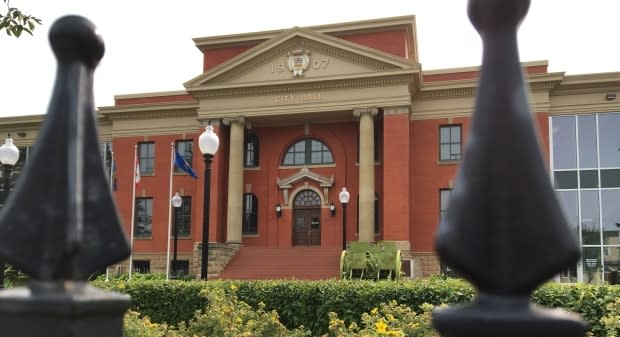Wetaskiwin city council allocates money for emergency shelter
Wetaskiwin city council has allocated up to $65,000 to re-open an emergency shelter by Dec. 1.
"We've got a larger vulnerable population than probably more cities or communities our size so it's important ... that they have a safe place to stay, especially when it gets as cold as it does here at nighttime," Mayor Tyler Gandam said.
The shelter in the community will be set up and run by either Hope Mission or Lighthouse Church.
Both organizations have submitted proposals. The money will keep the shelter running until March 31, 2020.
The city of 12,000 people, located about 70 kilometres south of Edmonton, has struggled to address issues faced by its homeless and transient population.
In a controversial move last autumn, sheds were put in place to offer temporary shelter until they were destroyed by a fire.

In February, the city set up an emergency shelter in the old town hall with a $40,000 provincial grant. But that money has run out.
On Friday, Gandam met with Maskwacis-Wetaskiwin MLA Rick Wilson in the hopes of securing another provincial grant.
Financial contributions are also being sought from the four nearby bands at Maskwacis.
Gandam said in the months that the shelter was open, RCMP had 50 per cent fewer prisoners and up to a 28 per cent decrease in calls for service. The hospital also saw fewer visits.
"I mean human nature and survival instinct kicks in," Gandam said. "You're going to be going to the hospital and it doesn't matter for what reason. You're going in there and making sure you're safe and secure and warm."
Jessi Hanks, who has written about homelessness in Wetaskiwin, said the shelter is greatly appreciated by the people who use it.
She visited the shelter regularly last year to deliver food donations from her employer, Castle restaurant.
"I can't even put it into words how grateful the people were to just be warm," Hanks said.

"They would all be smiling, happy, drying out their clothes. And when I would walk in with soup — just the smiles on their face that they knew they were going to get a meal — it was very heartwarming to see."
Hanks said some people with nowhere to go try to warm up in a doorway close to where she works but can't loiter there. When they ask where they should go, she has to tell them she doesn't know.
"That has been absolutely heartbreaking for me to say," Hanks said, expressing relief this would no longer be the case.
"I am very happy that I have a place to direct people or to take people myself."
Gandam said ultimately he would like to see a treatment facility put in place to address addiction as well as issues around mental health and life skills.
Last month, the province announced funding for 4,000 treatment beds as part of a multi-prong approach to tackle rural crime.
"With a shelter, no matter where it is, it's addressing the symptom, it's not addressing the root of the problem," Gandam said.


